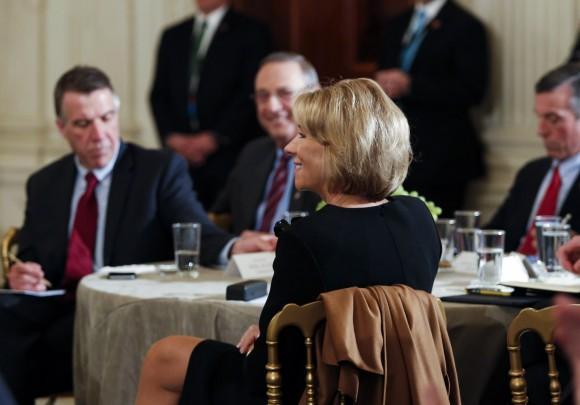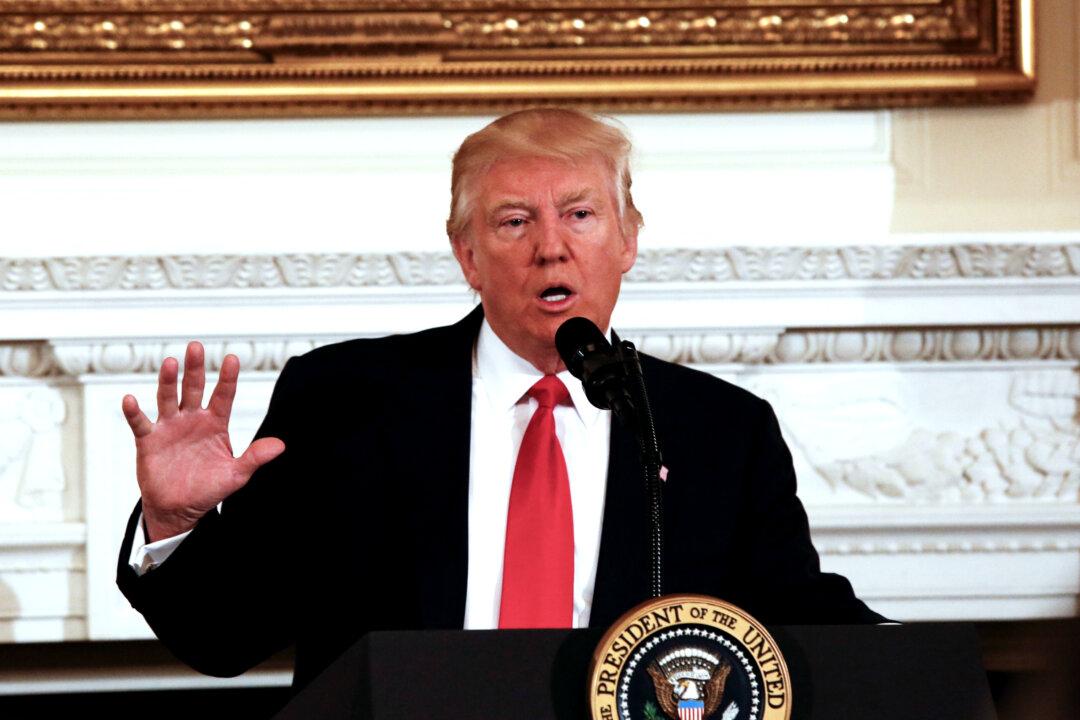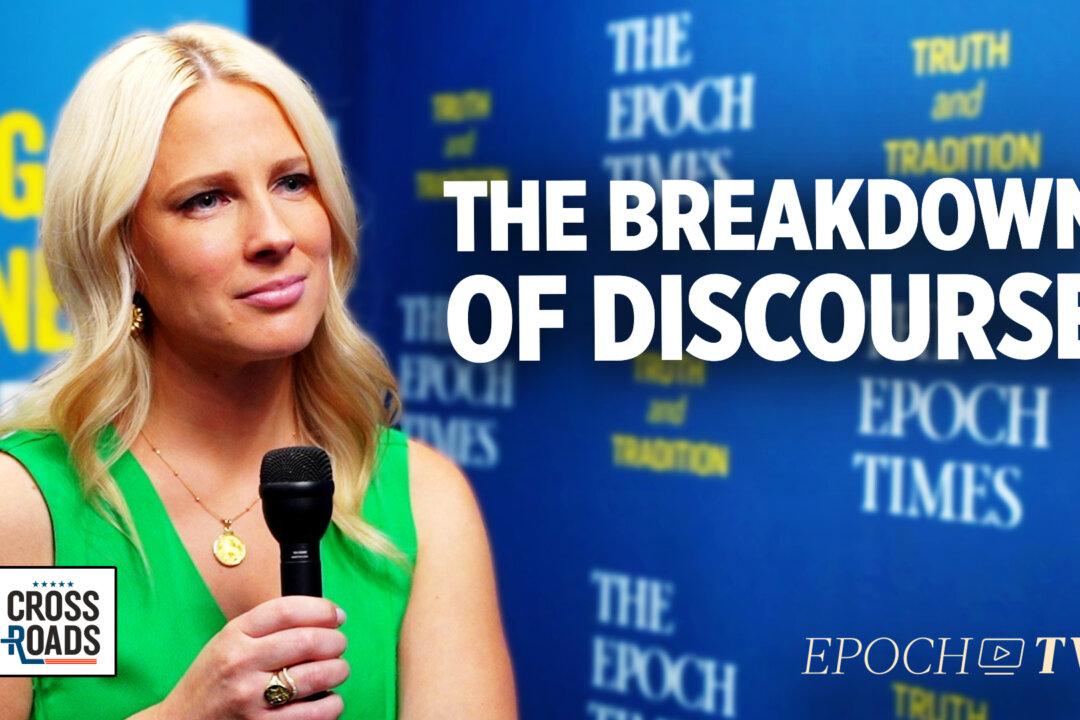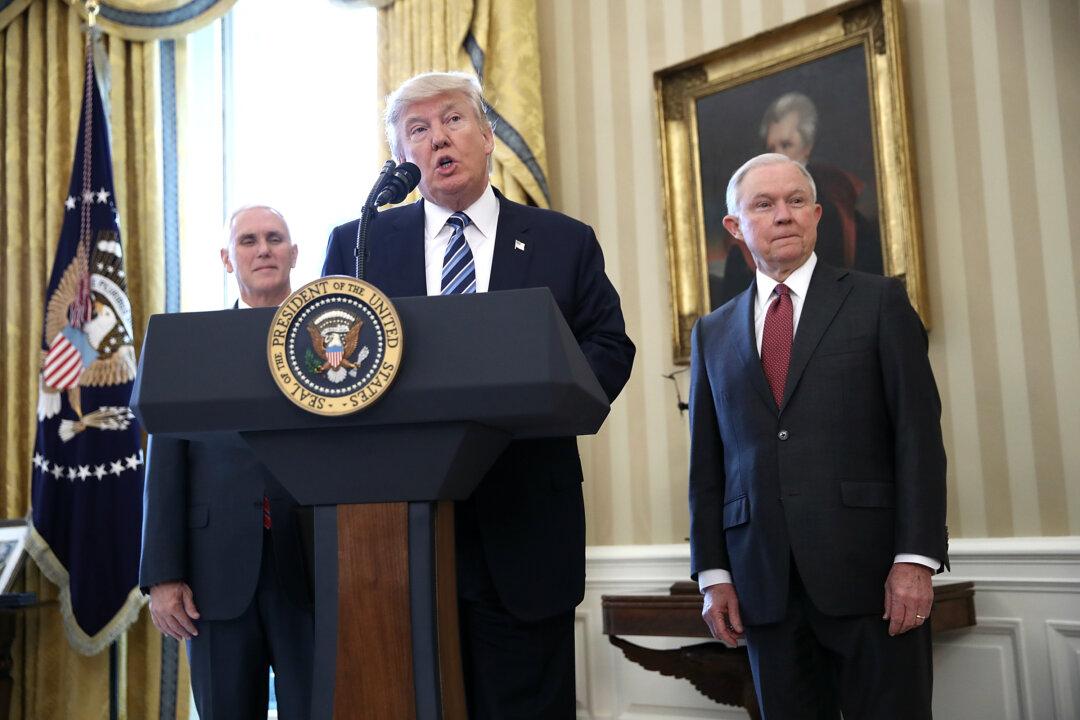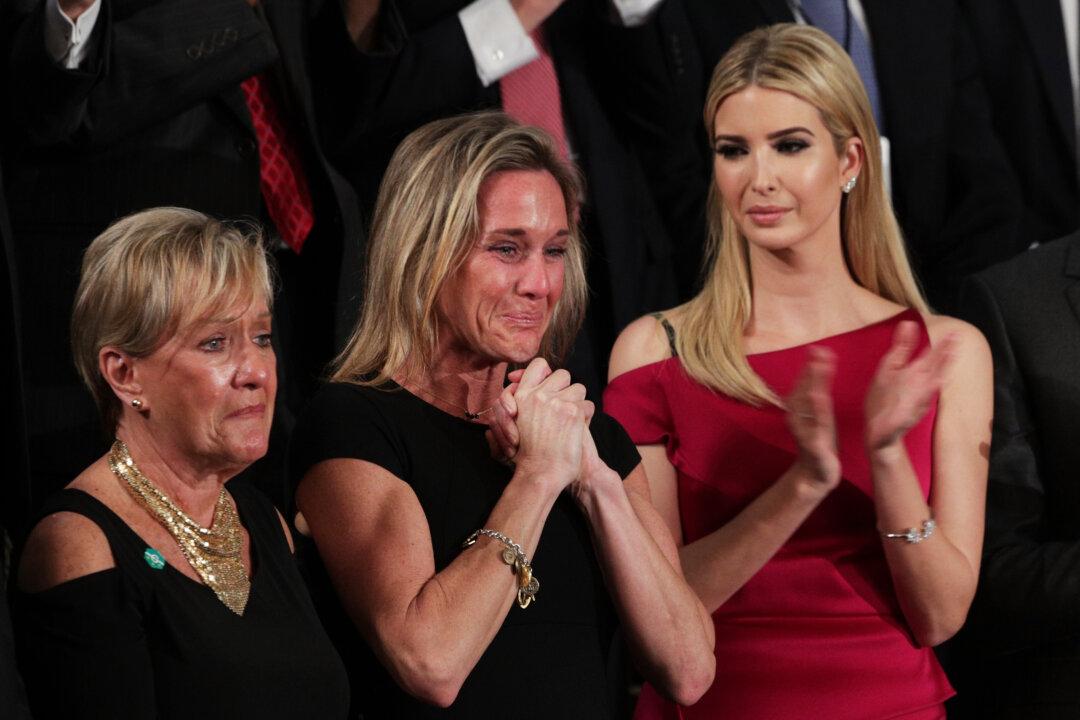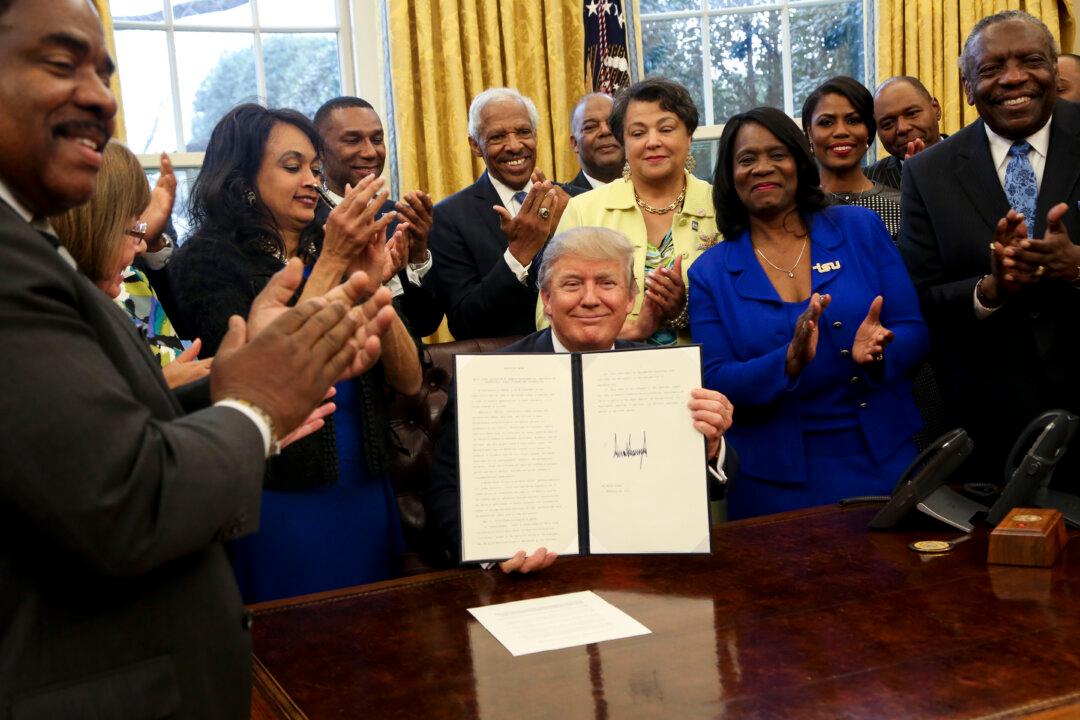President Donald Trump met with the nation’s governors on Sunday to discuss bringing more autonomy back to the states and to discuss his budget for 2017.
“These governors have been bold reformers, and their success shows why we need to make states the laboratories of democracy once again,” he said.
Trump placed emphasis on cutting federal red tape preventing states from moving quickly to get projects going, adding that the government “should not stand in your way in delivering needed reforms and services.”
We’re going to “make decision-making proper, and decision-making fast,” he said.
Trump said that his administration will do all that it can to restore the authority of the states.
“We’re going to give you back a lot of the powers that have been taken away from states,” he said, adding, “you can control it better than the federal government because you’re right on top of it.”
